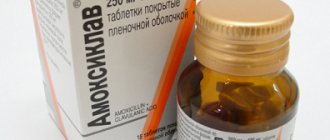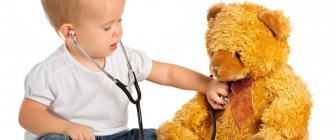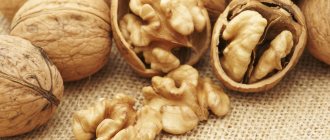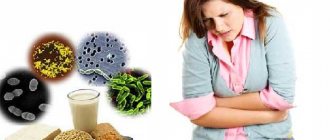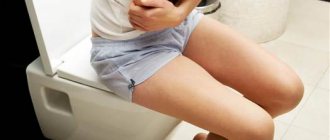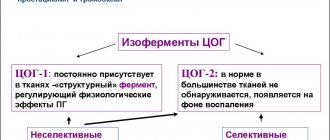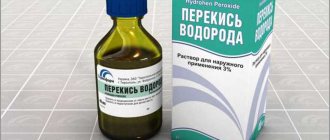Diarrhea is the most common disease of the digestive system. This is not an independent concern, but it is part of the symptoms of various infections or general illness.
It is broadly defined as diarrhea. This is very dangerous and requires immediate medical attention. In case of delay, there may be complications and irreversible changes in the body. Severe cases of diarrhea can be fatal.
Signs and causes of diarrhea
Let's look at the main causes of diarrhea:
- Intestinal infections. This is the most common cause of diarrhea in children. Active causes are viruses, bacteria, protozoa or fungi. Children's bodies are the most susceptible to their exploitation. In addition to loose stools, illness caused by infection is accompanied by nausea, vomiting, abdominal pain and almost always fever. In this situation, you do not have to do it yourself, but you should consult your doctor and order it while choosing the proper treatment. With different types of infection there may be a different pattern of loose stools.
- Disorders of intestinal microflora or dysbacteriosis. This disease is the result of qualitative and quantitative changes in a child's intestinal bacteria. The stool has characteristic features; it most often appears after constipation and has a greenish tint. The smell is sour, reminiscent of yeast. It has a foaming consistency. A small child may simply cry, while an older child will complain of abdominal pain. Showing the intestinal area in progress. In some cases, you must resort to antibiotics. In infants it is usually not curable by any measures and resolves spontaneously.
- Acute respiratory and viral illnesses can also cause diarrhea. It usually does not carry any specific characteristics, and the primary symptoms are respiratory symptoms.
- Evidence may cause diarrhea in children. No need to override your child. Monitor the number of servings consumed carefully, checking how much food can be eaten between feedings. This cause of diarrhea in children is simple and usually does not require treatment.
- Diarrhea in a child can be caused by various diseases of the digestive system. These may be anatomical reasons, but in some cases they are inflamed. Examples of such diseases are: Lesnivsky-Crohn's disease, inflammatory ulcerative colitis and others.
- Diarrhea may be caused by climate change. Here it can serve as an adaptive response to changing environmental conditions.
- Incorrect supplementary feeding of the child. Often mothers begin to introduce their daughter's products carelessly, starting right away to give him larger portions. This may be a mandatory position when it is necessary to pass a breastfeeding passage for bottle feeding. Sometimes this leads to intestinal obstruction. Some children experience constipation after taking the supplement; the body does not respond to various foods.
- The cause of diarrhea in children can be the child's fear or horror and be a consequence of severe nervousness. If the child is large enough, consultation with a psychologist is necessary. Because this is not a one-sided matter, do not leave this situation without any specialist. Avoid exposing your child to stress and psychological pressure.
- One of the rare causes of diarrhea in a child may be an allergic reaction to additional foods and ingredients in human milk. The most difficult situations are gluten and lactose intolerance. In this case, the child feels pain in the abdomen, and stool may be quite numerous. Losing body weight. And pinpointing exactly which product is causing this reaction is sometimes very difficult.
Antibiotics
According to statistics, in approximately 40% of cases, acute diarrhea in children in the first 5 years of life is caused by rotavirus infection, in 30% by other viruses1. Only 20% of diarrhea is bacterial in nature1. The remaining 10% includes stool disorders accompanying extraintestinal infections, for example, ARVI, food poisoning, diseases of the abdominal organs, as well as those caused by side effects of medications and other reasons1.
The doctor makes a decision on the need for antibacterial therapy based on the clinical picture and after microbiological analysis - determining the causative agent of diarrhea and its sensitivity to drugs. Antibiotics in the form of tablets for children with diarrhea are indicated only in the case of a bacterial nature of the diarrhea syndrome2. If the disease is viral in nature, they are ineffective; the main emphasis in treatment is on rehydration and enterosorbents2.
Indications for prescribing drugs for diarrhea
Never use self-healing. If you do not know the exact cause of liquid stools in your child, consult your doctor immediately because the effects may be irreversible.
Think about the situations in which your child should receive medication:
- The appearance of diarrhea and vomiting.
The first thing to do is to replenish your body fluids. Give your child as much water as possible without changing the acid-base balance of his environment. This is more difficult to do if the child is small and does not drink alone. Loss of fluid is dangerous for infants, since even a very small loss of water from the body, exceeding the natural rate of physiological excretion, can kill the child. Here are the drugs: Regidon, Gidrovit, Gastrolit, Glucosolan, etc. - Food poisoning, flatulence caused by the accumulation of toxins, viral and bacterial infections, neutralization of allergens. In this case, sorbents are used. The most popular of them are Smecta, Enterosgel, Polysorb, Filtrum. They will not have a therapeutic effect on the etiology, but will have a positive symptomatic and supportive effect.
- Intestinal infections. This is a mandatory and absolute indication for the prescription of antibacterial and anti-inflammatory drugs. Treatment is recommended at home; in severe cases, only inpatient treatment can be used. The most popular, effective and safe are: Furazolidone, Enterofuril, Stopdiar, Enterol, Rifaximin.
- Normalization of intestinal microflora as a result of the development of both dysbacteriosis and dysbacteriosis. These drugs normalize the function and composition of the intestinal microbiome. They stimulate the body's defenses and improve metabolism. This group of drugs includes: Acipol, Linex, Bifiform.
Rules for taking medications
You cannot decide for yourself which drug to use when treating children. The doctor must decide on the rules for taking and choosing products.
After prescribing treatment, you must familiarize yourself with the rules governing the medication regimen.
- Before taking medicine for diarrhea, you should practice good hygiene, especially if the disease is caused by an intestinal infection. To do this, wash your hands before eating or taking any medications.
- Maintaining proper nutrition. Sometimes medications are added to food. This is especially true for infants.
- Medicines for symptomatic diarrhea should be taken only for a short time. You should not continue treatment if your condition does not improve.
- Be sure to follow the recommended dosage. It should not be exceeded, especially in infants.
- Anti-diarrhea medications should be taken about 30 minutes before meals.
- Sorbents should be taken one hour after taking the main drug.
- Probiotics are prescribed after taking antibiotics. They are eaten an hour after taking antibiotics.
Comparison of normal stool in a child with pathology:
| Index | Norm | Pathology |
| Frequency | 3-4 times | 5 times or more |
| Subsequence | Dense, meaty | Liquid, watery, with an admixture of small clots against the background of a liquid mass. Foam with veins. |
| Color | Dark yellow or dark brown | Yellow, green, black, crimson, gray, reminiscent of rice broth. |
| Smell | Characteristic odor of stool. | Fetid, yeasty, sour, bilious. |
Diarrhea in infants - what causes it and how to treat it
The baby often experiences changes in the color, consistency, and frequency of stool. Since children are different from adults, infant stool becomes the source of many questions and concerns for parents - is this type of stool normal for a newborn, why does the child have green, loose stool? To understand what the contents of a baby’s diaper says about his health, what are the causes of diarrhea in a baby, how to treat diarrhea in a child so that he feels better quickly, will help a candidate of medical sciences, a doctor of the highest category, a pediatrician and deputy head of a children’s hospital. Savelovskaya Alla Anatolyevna Shcherbakova.
— Alla Anatolyevna, please tell us what diarrhea (diarrhea) is in a baby.
— Diarrhea is a disease, a functional disorder of the gastrointestinal tract, which is accompanied by loose stools. There is a Bristol stool scale, according to which diarrhea is considered to be liquid or semi-liquid with solid lumps. Diarrhea is not typical for healthy children.
— What are the symptoms of this problem and how can a mother distinguish diarrhea from normal feces?
— Diarrhea in young children is quite rare. However, according to statistics from the World Health Organization, a functional disorder of the gastrointestinal tract, accompanied by diarrhea, is in second place among the causes of death in children of the first year of life.
- Loose stool in a baby is normal.
A child of the first and second months of life has stools of a more liquid consistency than an adult. If the baby has stool the consistency of an egg yolk and has bowel movements after each feeding, but gains weight well, eats and sleeps, is cheerful and does not cry, then this should not cause concern to the mother.
Important! Diarrhea is not just loose stool. If a child does not gain weight in the first months of life and has frequent watery, foamy or loose stools with mucus or blood, this is a reason to immediately contact your pediatrician.
— Alla Anatolyevna, what can cause diarrhea in a baby?
— For a child in the first months of life, the main cause of diarrhea is food intolerance; for a child in the second half of life and the second year of life, it is an intestinal infection of a viral nature. But why a baby has diarrhea, a doctor must decide in each case.
Food allergy in an infant
occurs on the food he receives, most often cow's milk protein. Causes of allergies in infants:
- in a child who is exclusively breastfed - consumption of dairy products by the nursing mother;
- in a bottle-fed child - a reaction to cow's milk protein;
- A mixed-fed baby is more allergic to formula milk, and to a lesser extent allergic to mother's milk.
Infection of infants with intestinal infections
occurs through dirty palms and toys (when a child begins to crawl, pick up objects from the floor with his own hands, play outside).
Signs of an intestinal infection in a child:
- refusal to eat;
- decreased appetite;
- temperature increase;
- vomit.
— What does the color of the stool of a breastfed and bottle-fed baby indicate? What are the norms and dangerous situations?
— Bile pigments, which are produced by the liver, accumulate in the gallbladder and are released during nutrition, helping digestion, are responsible for the color of stool. They turn the baby's stool yellow, green, or olive green. Therefore, if the child feels well and gains weight well, and the stool has a greenish-yellow tint, this is the norm for up to a year.
- An infant has yellow diarrhea.
If a 4, 5 or 6 month old child has yellow stool and the temperature has risen, the stool has become more frequent and watery and profuse, and appetite has decreased - these are signs of an intestinal infection.
- The baby has diarrhea with mucus.
Mucus in the stool is the product of the activity of intestinal goblet cells, which secrete mucus. Mucus in a child’s stool is a sign of inflammatory colitis of the colon (an indicator of a food allergy or the final stage of an intestinal infection). There should be no mucus in the stool.
- Diarrhea without fever in a child - what can this mean and what should the mother do?
— Do not ignore diarrhea without fever in an infant. This may be a manifestation of pathological conditions. Such as:
- Food allergy - its cause will be determined by a doctor, who will also tell you what the mother needs to do.
- Antibiotic-associated diarrhea - in children it occurs during treatment of an infectious disease that is associated with the activity of clostridia and their toxins, which is accompanied by diarrhea with blood. This serious condition requires seeing a doctor.
- Gluten intolerance - prolonged diarrhea with celiac disease does not respond to traditional treatment and is not similar to the course of an intestinal infection. The assumption of the presence of such a disease requires additional examination, observation and, at a minimum, consultation with a competent pediatrician and pediatric gastroenterologist.
— Alla Anatolyevna, can diarrhea begin during teething?
— During the teething period, there may be a disturbance in stool, but it is not associated with the fact that the baby is cutting teeth. Teething is a normal, physiological process that occurs in all children. Diarrhea is not the norm, but a pathological disorder of the gastrointestinal tract (GIT), which is accompanied by loose stools.
— Diarrhea during complementary feeding—what is considered normal and what is a problem in such a situation?
— The first complementary foods are introduced to a healthy child in the second half of life. Starting from 6 months, the mother will gradually introduce vegetable purees, cereals, fruit purees and other complementary feeding products into the baby’s menu.
The introduction of complementary foods to a child may be accompanied by a violation of the stool pattern. But I wouldn't say it's diarrhea. The color of the stool may change in response to the color of the complementary foods, do not worry or worry.
It is necessary to worry and consult a doctor if, when introducing complementary foods, the child’s atopic dermatitis worsens, mucus appears in the stool, or rashes on the skin. It is important to determine the cause of the exacerbation (food allergy, intestinal infection, or simply a reaction to complementary foods). The mother needs to remove complementary foods for one or two days, observe the child and then decide with the doctor what behavioral tactics to choose.
— What medical tests should be taken for diarrhea?
— If a child is not gaining weight well, has diarrhea, stool abnormalities (mucus, blood in the stool), a doctor should examine him and order tests (and then evaluate their results).
What test should be taken if a child has diarrhea?
- Analysis for dysbacteriosis.
But it is worth remembering that there is no such diagnosis as dysbiosis, and it makes no sense to treat a child for opportunistic microorganisms that are in his intestines. - Coprogram
- examination of stool under a microscope. With its help, the doctor draws conclusions about the organoleptic, biochemical and bacterioscopic properties of the stool. - Intestinal culture
- a test for intestinal viruses (noroviruses, rotaviruses, bocaviruses) to exclude intestinal infection. - Complete blood test with leukoformula
- to determine the tactics for prescribing antibiotics in severe cases (in the treatment of intestinal infection). - Abdominal ultrasound
is a comprehensive ultrasound examination to determine the causes of gastrointestinal dysfunction in a child.
— Does my mother need to undergo any tests and when?
— Nursing mothers often ask to schedule a test for staphylococcus and allergies. If a child is sick, then there is little point in examining the mother. Staphylococci are opportunistic microbes that live on the skin and in the ducts of the mammary glands of healthy women. They can cause disease under certain conditions.
In 30% of cases, the breast milk of healthy women contains staphylococci. No treatment required.
There are also no indications for testing breast milk for sterility, because mother's milk should not be sterile. Breast milk contains microbiota that is specific to this mother and with which she will populate the baby’s intestines.
- Consequences of diarrhea - how to deal with them?
— Diarrhea causes a child’s body to lose fluid and electrolytes. This leads to dehydration and loss of 10% or more of body weight. This condition can be dangerous, especially for low birth weight babies and young children. Treatment is carried out in the hospital (infusion therapy or dehydration with a drip).
In addition, serious complications of intestinal infections require hospital treatment and observation in a hospital setting. If the baby pees little or there is no urination, this may be an alarming sign of hemorrhagic syndrome in infants, which is accompanied by renal failure.
Indirect consequences of an intestinal infection sometimes include diaper rash (stool contains digestive enzymes that irritate the skin during diarrhea).
Important!
Signs of diarrhea in a baby that require an appointment with a doctor during the day:
- Loose stools and lack of weight gain.
- The appearance of blood in the stool.
- A combination of diarrhea and vomiting.
- Discolored white stool.
- Anti-diarrhea medications for children under 1 year of age - what does the doctor prescribe, and what can the mother use on her own?
— How to treat diarrhea in an infant or loose stool in a one-year-old child always depends on the condition of the baby and the opinion of his doctor.
The intestinal infection passes (1-3 days), stool and appetite are restored, the temperature most often subsides with symptomatic treatment without additional therapeutic measures. The doctor may recommend a diet without milk, coarse vegetable fiber, or sugar. Enzymes (added to food and help digestion), enterosorbents (taken without food and absorb toxic products of viral breakdown) or biological products (displace pathogenic viruses from the microbiota and populate the intestines with good strains) may be prescribed.
If we talk about food allergies and diarrhea in infants during breastfeeding, then a dairy-free diet may be recommended for the mother. If a baby’s diarrhea occurs during artificial feeding, a special medicated milk formula is selected for the baby. When a child receives nutrition that suits him for a month, he should show obvious positive dynamics (weight gain, significant improvement in well-being).
— How to alleviate a child’s condition with diarrhea?
— 10 years ago, to treat diarrhea due to an intestinal infection, a water-tea break was prescribed - the child was not fed anything and was given only drinks during the day. It is now believed that such pauses are unnecessary and the little patient suffers more from hunger than from an intestinal infection.
If you have diarrhea, you should feed your child in small portions and in smaller doses (shorten the interval between meals and reduce the volume of one feeding). There is no need to give water or supplement the baby. In case of dehydration due to childhood diarrhea, tea, mineral water, jelly, and dried fruit compote are indicated.
A child's stool is an indicator of his health. So don't rush to throw away the diaper and pay attention to its contents. If you suspect your baby has diarrhea, be sure to discuss the situation with your pediatrician, especially if you have a baby in the first months of life. Diarrhea is a pathology and a common sign of an intestinal infection or food allergy in a child under one year old. The care and attention of the mother, consultation with a doctor and appropriate treatment is all that the child needs to cope with diarrhea and be healthy and happy.
Pediatrician Alla Anatolyevna Shcherbakova
*The ideal food for an infant is mother's milk. WHO recommends exclusive breastfeeding for the first 6 months. MAMAKO® supports this recommendation. Before introducing new foods into your baby’s diet, consult a specialist.
Side effects and contraindications
List of side effects and contraindications:
- If antidiarrheal drugs are used incorrectly, headaches, dizziness, and epigastric pain may occur.
- After taking medications for diarrhea, a rash of various types may appear on the child’s body; here it is necessary to pay close attention to it, since the condition can develop into anaphylactic shock.
- In some cases, the child may vomit and the diarrhea may become worse.
There are serious contraindications to the use of anti-diarrhea medications:
- Increased body temperature, blood in the stool, intestinal obstruction, the presence of diseases such as epilepsy, liver problems of various origins and gastrointestinal ulcers in a child.
- Drugs such as Levomycetin and Tetracycline are contraindicated in children under a certain age, so they are used only with a doctor's prescription.
Rehydrants
Diarrhea is primarily caused by dehydration. With liquid feces, the child’s body loses water and electrolytes, this can lead to disruption of the cardiovascular and nervous systems1,2.
Mild dehydration is characterized by agitation, tearfulness, and extreme thirst2. The child drinks water with pleasure and cannot get drunk. If fluid loss continues and dehydration becomes severe, lethargy and lethargy sets in, tears practically disappear, the eyes become sunken, urination becomes rare or disappears altogether2. The consequences can be dire. Rehydration products help replenish fluid losses, restore water and electrolyte balance and prevent complications1,2.
For mild dehydration, the doctor usually recommends drinking plenty of fluids - this is the first treatment for diarrhea in children1,2. Approximately 1/3 of the liquid that the baby drinks should be special rehydration solutions consisting of salts, glucose and water1,2,3.
Warm drinks should be given in small portions, 1 spoon every 10-15 minutes3. Breastfed babies, as before, should receive mother’s milk, and bottle-fed babies should receive special probiotic milk formula3. Children over 5 years of age are sometimes advised not to feed for 4-6 hours to allow the gastrointestinal tract to recover and prepare for the next meal3.
If dehydration is severe, the doctor will hospitalize the child. Rehydration is carried out by intravenous administration of solutions2.
Diet in children with diarrhea
In the acute phase of the disease, feed your baby only liquid or pureed food. Foods can be chopped or pureed using a blender. It is recommended to serve the meat to the child in the form of puree or baked soufflé.
If possible, limit or completely avoid foods that increase peristalsis. You need to feed your baby less fresh vegetables and dairy products.
If your baby is breastfed, you should continue to breastfeed. In case of diarrhea, you should increase the amount of food you drink, while reducing the portion. The same should be done with a child who is artificially fed.
If you are feeding your baby special baby-approved tea or water, continue. In case of excessive diarrhea or vomiting, the amount of fluid administered should be increased.
Preventive actions
Prevention methods are quite simple:
- If an epidemic of intestinal infections begins, do not allow your child to come into contact with other sick children.
- Observe personal hygiene rules after walking, visiting public places or public transport.
- Before eating raw food, it should be thoroughly washed and cleaned. Food should always be fresh.
- Before breastfeeding, the mother should wash the breasts, dry them and prevent purulent, pyoderma or fungal infections.
- The dishes from which the child eats must be clean and free of old food residues. No one in the family should eat food until the child is fed.
- The child's nutrition should be balanced, rich in vitamins and microelements. Pay attention to the child's eating habits; it should be divided into portioned and small meals. Overeating should be avoided.
- Baby food should be introduced gradually, carefully observing the body's reaction to the food consumed.
- During peak periods at different times of the year, they should be prevented with antiviral drugs.
Causes of diarrhea in a child
The acute process is often infectious in nature, especially if it occurs suddenly or is combined with vomiting, blood, fever and anorexia. Maintenance treatment is prescribed based on clinical diagnosis and continues until improvement occurs.
Chronic diarrhea in a child without fever can develop due to the following reasons:
- Allergic gastroenteropathy. Cow's milk protein causes bloody diarrhea and vomiting. The condition is normalized when hydrolyzed protein is included in the diet instead of cow's milk. Most children improve spontaneously.
- Disaccharidase deficiency. It is characterized by the absence of lactase, which breaks down lactose into galactose and glucose. The disorder may be congenital or develop after a gastrointestinal infection, acting as a temporary disorder. An improvement in the condition after eliminating lactose or other carbohydrates from the diet confirms the diagnosis. In this case, the child has light diarrhea and there is severe irritation in the perineal area caused by liquid feces.
- Gluten enteropathy (celiac disease). In celiac disease, the wheat protein fraction damages the intestinal mucosa, which can impair fat absorption. This leads to malabsorption and anorexia, which is accompanied by the passage of copious amounts of stool. Changes in the body occur when consuming products made from wheat flour and dishes containing gluten.
- Cystic fibrosis. Cystic fibrosis is characterized by the development of pancreatic insufficiency, which is accompanied by a deficiency of trypsin and lipase. In this case, there is a large loss of fat and protein in the stool, which means that physical development is delayed. The stool is usually smelly. Children with cystic fibrosis often develop respiratory problems.
Inflammatory processes in the intestines and some infections can also cause diarrhea. The most common is gastroenteritis, an infection of the small intestine that is accompanied by vomiting. The main danger of this disease is dehydration and water-electrolyte imbalance. Dehydration develops especially often and quickly against the background of rotavirus infection.
The causes of secretory diarrhea in a child are usually due to infection:
- bacterial (staphylococcus, salmonella, E. coli, shigella);
- parasitic (giardiasis, amoebic dysentery).
Secretory diarrhea can also be caused by inflammatory bowel disease. In children it can occur with excessive consumption of carrots and peas. The reason is increased intestinal motility. This type of diarrhea goes away on its own over time. Diarrhea with blood in a child develops against the background of an acute intestinal infection - campylobacteriosis, necrotizing enterocolitis, intussusception (intestinal obstruction).
Black diarrhea
After taking activated carbon and some vitamin and mineral preparations, stool may turn black. This may also be due to internal bleeding - from the stomach, esophagus or intestines, which occurs against the background of serious pathologies (ulcers, cancer, polyps, etc.). Associated symptoms of internal bleeding may include pale complexion, dizziness and anemia.
If you have black diarrhea, you should consult a doctor immediately. For diagnosis, a specialist will prescribe fibroesophagogastroduodenoscopy (examination of the esophagus, stomach cavity and duodenum using a gastroscope, which is inserted into the stomach through the mouth and esophagus) or colonoscopy (probing of the colon).
Chronic diarrhea
Frequent diarrhea in a child can manifest itself as a mild illness or more serious disorders. At the same time, the intestinal walls become susceptible to various allergens and toxins, and the protective functions of the liver are reduced. The body absorbs vitamins and minerals worse, metabolic processes worsen, and liver and pancreas diseases occur.
The following factors can trigger the development of chronic diarrhea:
- long-term use of medications, especially antibacterial ones;
- long-term treatment with hormonal drugs and NSAIDs;
- unbalanced diet;
- immunodeficiency states;
- stress, emotional overstrain.
Chronic diarrhea causes nausea, loss of appetite, bad taste in the mouth, belching, pain and bloating, weakness and trouble sleeping. To make a diagnosis, a microbiological examination of the stool is performed, as well as an assessment of the digestive system. Therapy is aimed at eliminating the causes and restoring the general condition.
Diarrhea with mucus
Mucous diarrhea in a child develops against the background of a violation of the intestinal microflora, polyps and hemorrhoids. Mucus binds and removes pathogenic microorganisms. Clinical signs of hemorrhoids include itching and bleeding from the anus. Intestinal diverticulitis also causes mucus to be secreted in the feces. Associated symptoms are abdominal pain arising on the left side and flatulence.
Diarrhea with mucus in children occurs as a result of insufficient bowel function. As a rule, this is associated with poor nutrition. This condition is accompanied by malaise, nausea and rumbling in the stomach. Liquid feces with mucus also occur with IBS (irritable bowel syndrome). To identify the disease and the purpose of therapy, you need to contact a specialist and conduct a diagnosis.
Diarrhea and fever
Diarrhea, vomiting and fever are the main signs of an intestinal infection, which can be caused by bacteria or viruses. An accurate diagnosis can only be made by a doctor after examination.
In the first hours after the onset of alarming symptoms, frequent small drinks are necessary. Dark colored urine may indicate a lack of fluid in the body. Normalizing the water-salt balance during intestinal infections is extremely important. Refusal of food and heavy drinks in case of diarrhea, vomiting and fever is a necessary condition. Drug treatment of intestinal infections is carried out under the strict supervision of a doctor.
Severe diarrhea
If the small intestine is affected, severe diarrhea may occur. This can happen during food poisoning and intestinal infections. Often such stools are watery, may contain food debris and do not cause abdominal pain. Bile acids and peptide molecules can promote the release of water and ions. The severe condition can occur when the absorption of bile and fatty acids is impaired, such as in Crohn's disease.
Basic Rules
Recommendations, rules and tips:
- The child's condition should not be underestimated, especially if symptoms do not improve within a few days.
- The drug should be given to children only with a doctor's prescription.
- This medicine should not be given to a child unless it is approved for the child's age.
- Do not treat your child with adult diarrhea medications.
- Follow strict dosage depending on body weight, age, etc.
- The prescribed diet should be strictly followed.
- You should not prescribe medications for diarrhea, which, even with the correct influence of the etiological factor, can cause changes in the development of the child. Tetracycline antibiotics promote bone and tooth growth and may cause bone abnormalities.
- It should not be stopped, especially if the baby is breastfed.
- Diarrhea medications that slow down bowel function should not be prescribed until the cause of the disease is identified.
- Use only anti-diarrhea medications that your child is allowed to take. Do not give tablets to an infant if he or she cannot swallow them.
Features and nature of diarrhea
This condition is characterized by increased intestinal motility with changes in stool color and consistency. The basis of the problem is the accelerated passage of food through the intestines, which is accompanied by insufficient absorption of fluid, as well as an increase in the formation of mucus. In healthy infants, sometimes after eating or during feeding, stool occurs due to the gastrocolytic reflex.
There are pathological defecation:
- with a large amount of stool (for diseases of the pancreas, stomach, dysfunction of the small intestine);
- with a small amount of stool (with peptic ulcers and colitis affecting the distal intestine).
Loose stools are normal for babies. Sometimes the stool takes on a greenish tint, which occurs mainly when feeding cow's milk - this is not dangerous. Diarrhea can also occur with a urinary tract infection.
Frequent soft stools (4-6 times per day) can be observed in healthy infants; This should not be a cause for concern unless there are signs of anorexia, vomiting, weight loss, weight gain, and bloody discharge. Increased peristalsis is common for breastfed babies. How many days can a child have diarrhea without consequences? The risk of developing complications of diarrhea in children at any age depends on the nature of the course - acute (up to 14 days) or chronic (from 2 weeks or more). In some situations, especially in children under one year of age, diarrhea can lead to serious complications within a few hours.
